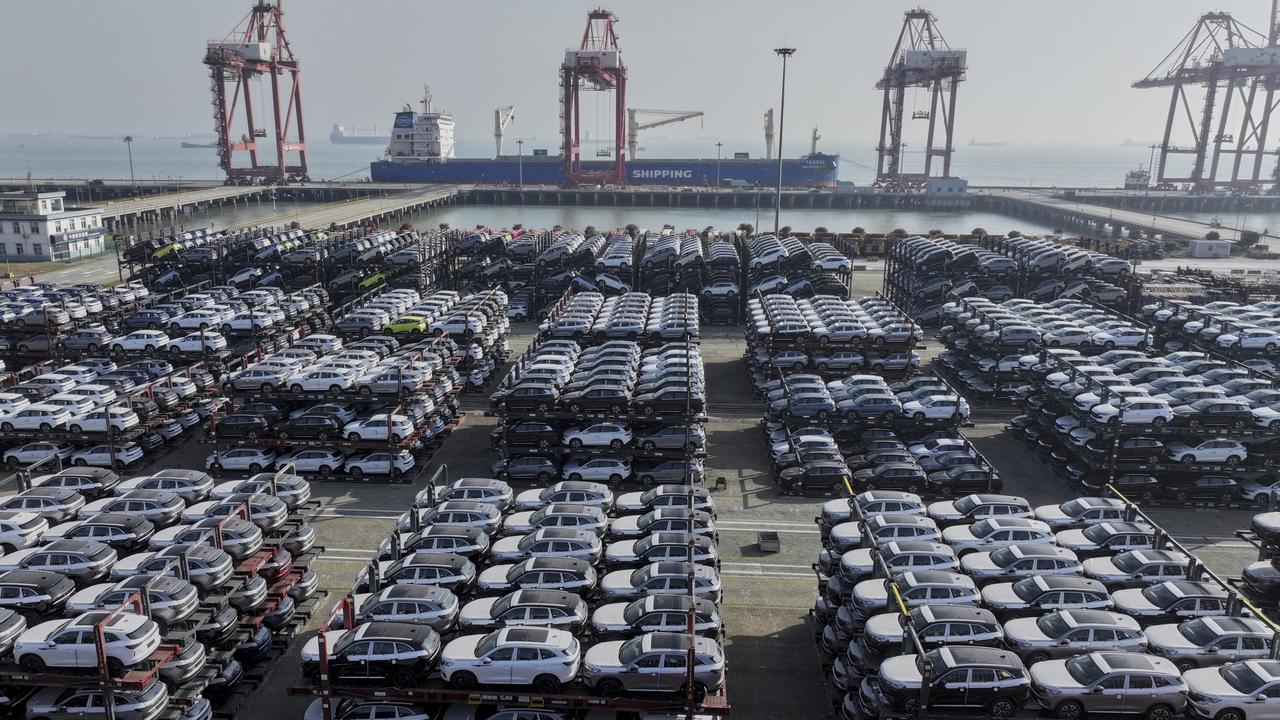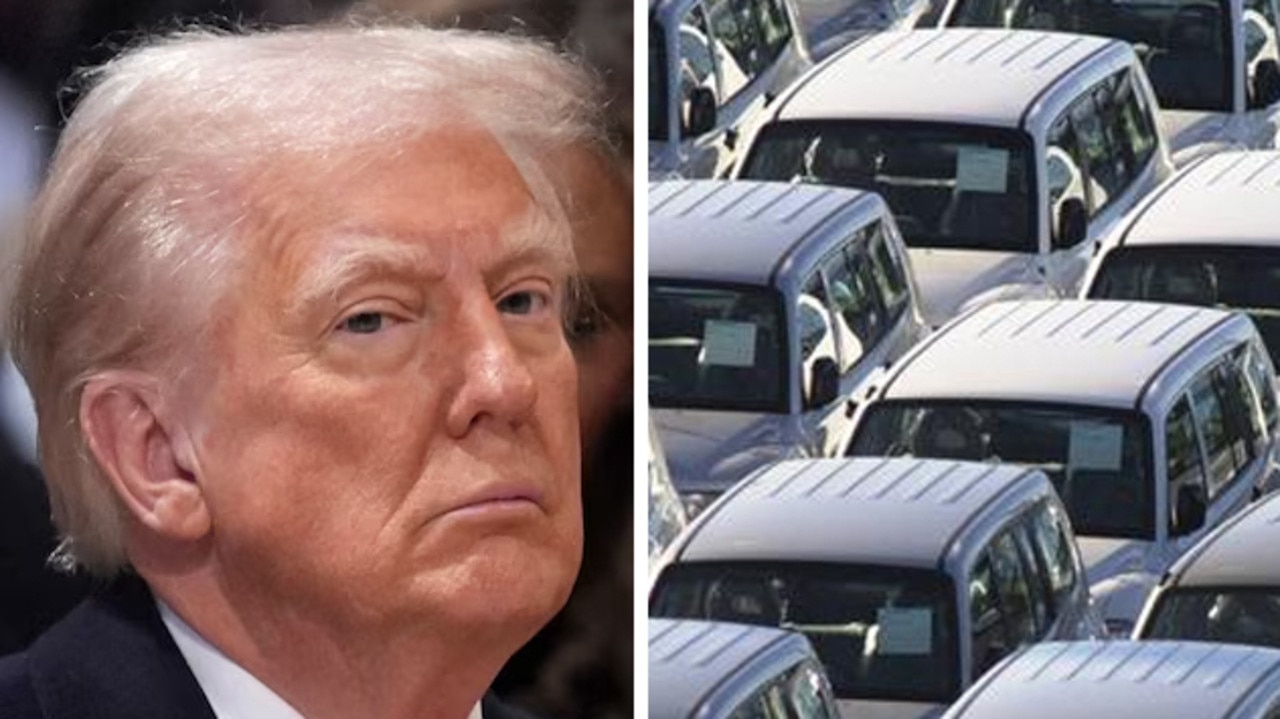Election 2025: How rising new car prices could win votes for Peter Dutton
Car prices are set to emerge as a key battleground in the Federal Election with a bitter battle brewing between Labor, the Coalition and vehicle manufacturers.
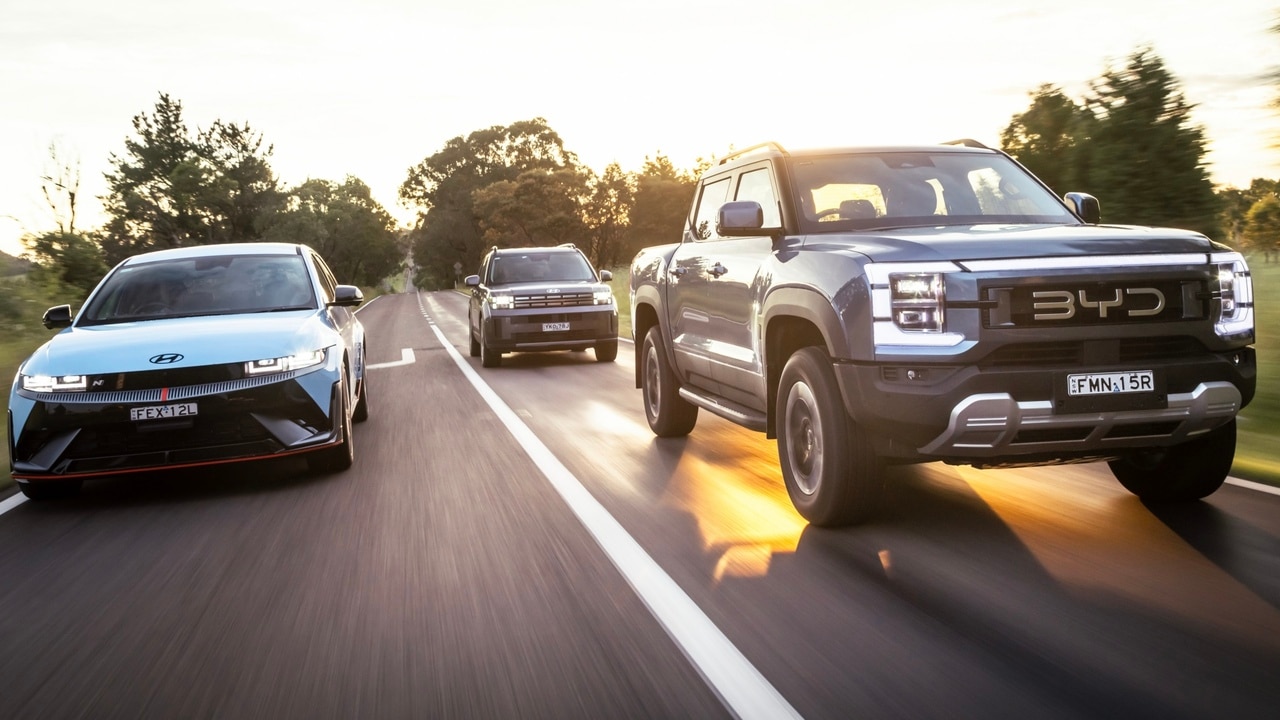
Motoring News
Don't miss out on the headlines from Motoring News. Followed categories will be added to My News.
Car prices could be a key battleground in the Federal Election, with a battle brewing over controversial fines for carmakers that exceed emissions targets.
The Albanese Government has implemented an emissions-based penalty scheme that will fine carmakers which exceed targets from July 1.
A report in The Australian on Wednesday claims a coalition government led by Peter Dutton would not fine manufacturers which exceed tough targets.
The broadsheet’s front page claims “The Australian can reveal the Coalition will retain the New Vehicle Emissions Standards (NVES), but will not punish companies financially that do not meet the tough carbon goals”.
The coalition’s position could help keep a lid on the rising cost of new vehicles.
MORE: Trump tariffs hit Toyota
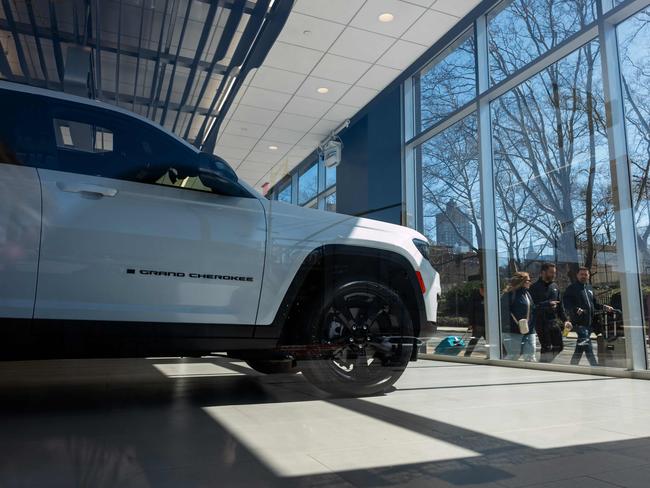
One Australian motoring executive told News Corp Australia on background that the NVES scheme, which fines car makers who cannot meet strict stringent targets, could increase prices by as much as 10 per cent.
Manufacturers say they will not absorb millions of dollars in fees attracted by cars that exceed proposed standards, and will instead pass costs on to customers who choose thirsty cars that do not have hybrid or electric motors.
Tony Weber, chief executive of the Federal Chamber of Automotive Industries, told The Australian “we can’t see a scenario where prices won’t increase under the NVES … There will be penalties in the system come July 1 if we don’t make the targets”.
Toyota’s vice president for sales, marketing and franchise operations, Sean Hanley, told News Corp last month “the targets within the NVES are very challenging”.
“That’s for us, and everybody else,” he said.
The coalition proposal has been met with mixed reactions.
MORE: Wild Uber plan to get rid of your car
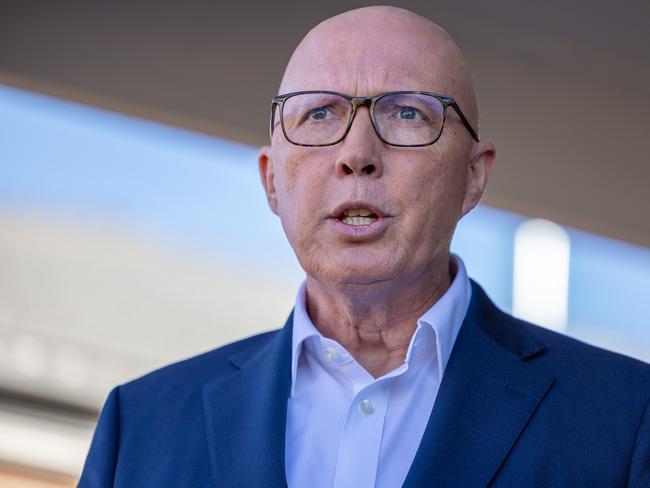
While car companies have expressed relief that the scheme could be watered down, electric vehicle advocates say it is a step in the wrong direction.
Julie Delvecchio, chief executive of the Electric Vehicle Council, said “to remove fines from the NVES is a bit like having a speed limit with the speed cameras turned off”.
“The NVES doesn’t work without a carrot and stick approach,” she said.
“The ability to earn credits for bringing in fuel-efficient cars is an incentive for car manufacturers to deliver modern, cheaper-to-run models to Australians, while fines ensure compliance with standards.
“The NVES is working – it is already bringing more choice in cheaper-to-run cars, lower costs at the fuel pump no matter whether it’s petrol, diesel or electric, and cleaner air right across the country.
“Without a strong fuel efficiency standard, Australia risks once again becoming the world’s dumping ground for fuel-guzzling, polluting vehicles.
“Some manufacturers may prefer a toothless policy, but Australians would pay the price for such shortsighted changes.”
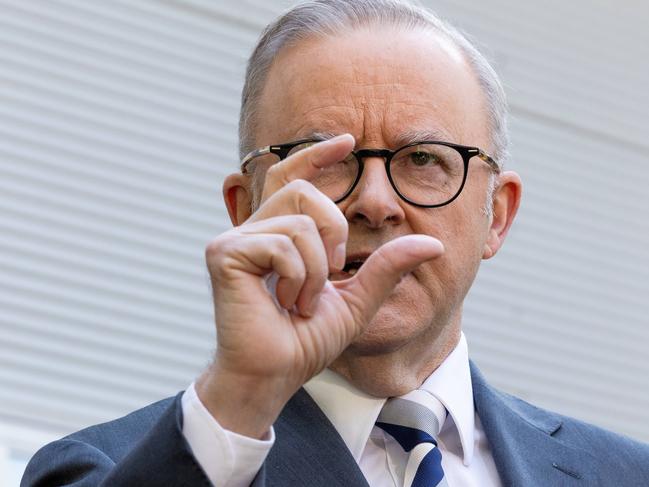
Heidi Lee Douglas, chief executive of environmental advocacy group Solar Citizens, said a watered-down NVES would result in Australians paying higher vehicle fuelling and operating costs in the long run.
“This would be a huge step backward for cost of living and energy security, making Australians more reliant on expensive imported fossil fuels,” she said.
Originally published as Election 2025: How rising new car prices could win votes for Peter Dutton




